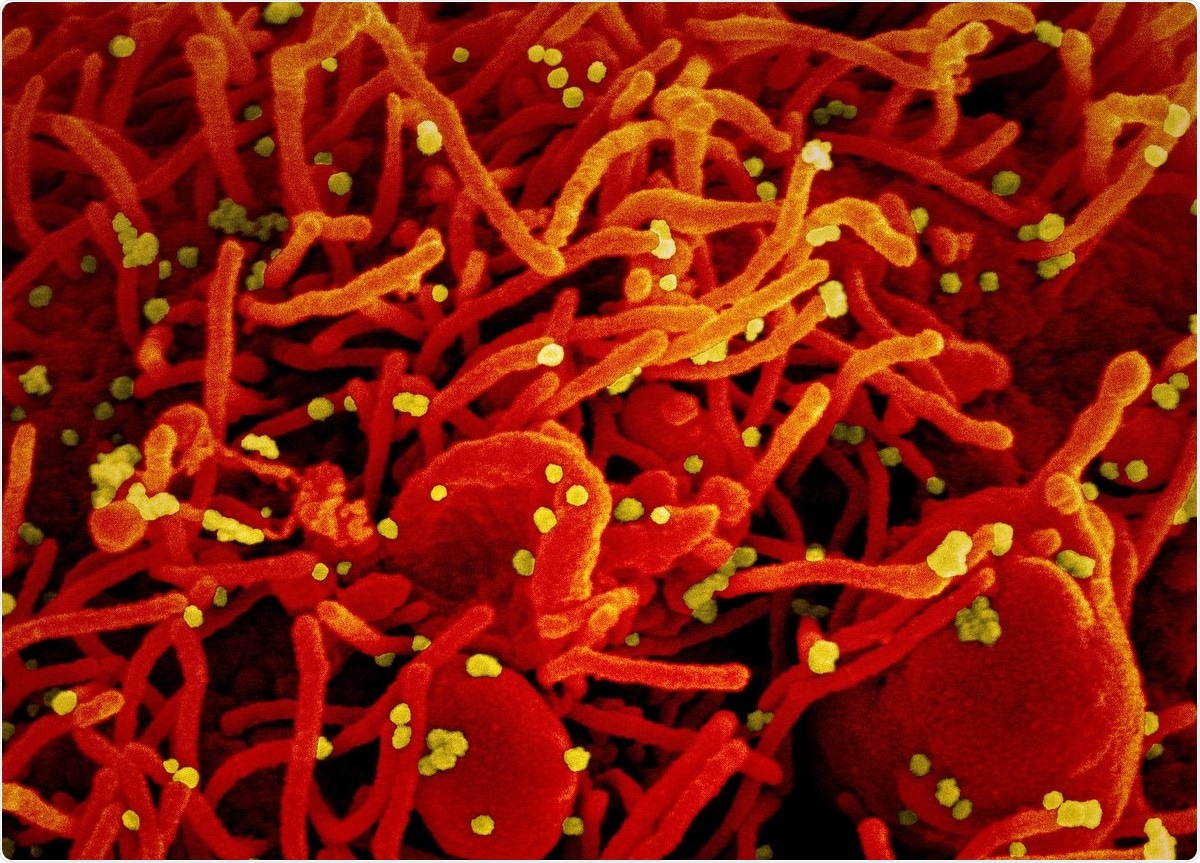A study conducted at the University of Colorado and National Institutes of Health, USA, has revealed that the resistance developed by newly emerging variants of severe acute respiratory syndrome coronavirus 2 (SARS-CoV-2) against host interferon responses could serve as a potential driving force for viral evolution. The study also highlights that the enhanced lethality of emerging variants could be associated with their ability to evade interferon-mediated innate immune responses. The study is currently available on the bioRxiv* preprint server.

Background
Since the emergence of SARS-CoV-2, the causative pathogen of coronavirus disease 2019 (COVID-19), many studies have highlighted the association between type I interferon responses and COVID-19 severity. Several clinical trials have also been done to investigate the efficacy of interferons in treating moderate to severe COVID-19 patients.
Interferons (IFNs) are a group of glycoproteins that act as the first-line of defense against invading pathogens, such as viruses. There are three types of IFNs in humans namely type I IFNs (IFNα, IFNβ and IFNω), type II IFNs (IFNγ), and type III IFNs (IFNλ1, IFNλ2, IFNλ3, and IFNλ4). After production and secretion from a variety of cells in response to viruses or cytokines, IFNs bind to high-affinity cell surface receptors to mediate a wide range of cellular activities, including regulation of inflammatory responses, transcriptional activation of genes required for viral clearance, and induction of innate and adaptive immune responses.
In the current study, the scientists have explored the ability of newly emerging SARS-CoV-2 variants in modulating IFN-induced host immune responses. Specifically, they have investigated SARS-CoV-2’s inhibitory effects of different types of IFNs.
Study design
The study was conducted on five SARS-CoV-2 isolates from prominent lineages, including the standard USA-WA1/2020 isolate from lineage A, D614G isolate from lineage B, the Italian isolate from lineage B.1, the UK isolate from lineage B.1.1.7, and the south African isolate from the lineage B.1.351. The scientists tested the antiviral activities of experimental IFNs using a human alveolar epithelial cell line stably expressing human angiotensin-converting enzyme 2 (ACE2). Initially, they pretreated these ACE2-expressing cells with 17 types of recombinant IFNs, followed by experimental infection with live viral isolates.
Important observations
The findings revealed a range of antiviral activities of 17 types of IFNs against five viral isolates, with IFNλ subtypes (type III IFNs) showing the weakest effect and type I IFNs showing the highest effect. Among various type I IFNs, the most potent antiviral activity was observed for IFNα8, IFNβ and IFNω. All tested IFNs showed comparable antiviral efficacy against the D614G variant of SARS-CoV-2.
Using an IFN-sensitive reporter cell line, the scientists observed a correlation between type I IFN receptor signaling and antiviral activities of IFNα subtypes against the viral lineages A and B. However, they did not observe any such correlation for the lineages B.1, B.1.351, and B.1.1.7.
The scientists generated a heat map to thoroughly investigate the antiviral activities of 14 type I IFNs against five viral isolates. Using an ancestral lineage (Germany/BavPat1/2020) as a reference, they observed that all newly emerging viral variants developed 17 to 122-fold resistance against type I IFNs. The isolate belonging to the B.1.1.7 lineage displayed the highest type I IFN resistance. By conducting similar experiments using the USA-WA1/2020 strain as a reference, they observed 25 to 322-fold higher resistance for newly emerging viral variants.
While comparing the antiviral activities of type I and type III IFNs, they observed that the viral inhibitory activities of both IFNβ and IFNλ1 were lower against the B.1.1.7 lineage compared to the B lineage. Interestingly, they observed that both IFNβ and IFNλ1 failed to achieve the highest inhibition against the B.1.1.7 lineage. Furthermore, they observed a similar trend for the B.1.351 lineage, which showed significantly higher resistance to both IFNβ and IFNλ1 compared to the B lineage. Taken together, these observations indicate that newly emerging SARS-CoV-2 variants are highly resistant to both type I and type III IFN responses.
Study significance
The study highlights the importance of type I IFNs as potential anti-SARS-CoV-2 therapeutics. According to the study findings, a higher dose of type III IFNs might be required to achieve similar antiviral efficacy as type I IFNs.
Importantly, the study reveals that newly emerging SARS-CoV-2 variants develop significant resistance against both type I and type III IFNs. Based on this observation, the scientists believe that evasion of host innate immune response might serve as a potential driving force for the viral evolution.
*Important Notice
bioRxiv publishes preliminary scientific reports that are not peer-reviewed and, therefore, should not be regarded as conclusive, guide clinical practice/health-related behavior, or treated as established information.
- Guo K. 2021. Interferon Resistance of Emerging SARS-CoV-2 Variants. BioRxiv. doi: https://doi.org/10.1101/2021.03.20.436257, https://www.biorxiv.org/content/10.1101/2021.03.20.436257v1
Posted in: Medical Science News | Medical Research News | Disease/Infection News | Healthcare News
Tags: ACE2, Angiotensin, Angiotensin-Converting Enzyme 2, Cell, Cell Line, Coronavirus, Coronavirus Disease COVID-19, Cytokines, Efficacy, Enzyme, Evolution, Genes, heat, Immune Response, Pathogen, Receptor, Respiratory, SARS, SARS-CoV-2, Severe Acute Respiratory, Severe Acute Respiratory Syndrome, Syndrome, Therapeutics

Written by
Dr. Sanchari Sinha Dutta
Dr. Sanchari Sinha Dutta is a science communicator who believes in spreading the power of science in every corner of the world. She has a Bachelor of Science (B.Sc.) degree and a Master's of Science (M.Sc.) in biology and human physiology. Following her Master's degree, Sanchari went on to study a Ph.D. in human physiology. She has authored more than 10 original research articles, all of which have been published in world renowned international journals.
Source: Read Full Article
